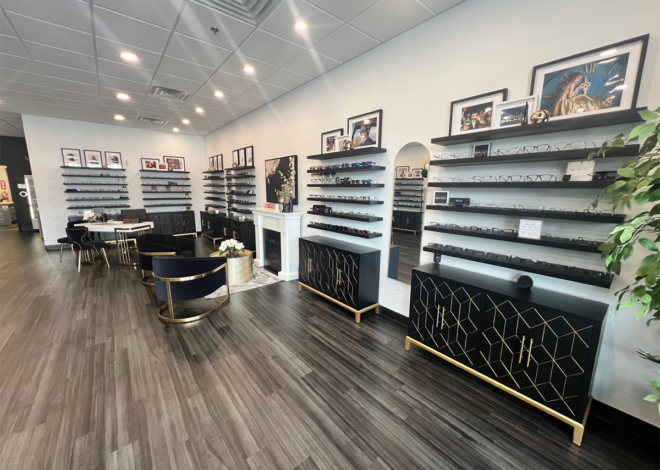PR: Theatre Historical Society of America Completes Move From Chicago to Pittsburgh
execdirector@historictheatres.org
1-877-242-9637 x301


Images 1 & 2: Loew’s Penn Theater (now Heinz Hall) construction photo from the Loew’s Collection, American Theatre Architecture Archive;
Image 4: Originally the Art Cinema, now known as the Harris Theatre. Photo from the Jim Kastner Collection, American Theatre Architecture Archive
[Click images for larger view]
FROM CHICAGO TO PITTSBURGH
PITTSBURGH, PA (PittsburghNewsWire.com) — The Theatre Historical Society of America (THS) is proud to announce it has recently moved its collections and staff from outside Chicago, Illinois to Pittsburgh, PA.
Theatre Historical Society of America was founded in 1969 by the late author, Ben M. Hall. Hall, an Editor for Time-Life in New York, is best remembered for his groundbreaking book celebrating the historical and cultural significance of lavish movie theatres in America, The Best Remaining Seats. Sadly, less than a year after founding THS, Mr. Hall was murdered in New York. His personal collection of theatre memorabilia, pictures, manuscripts and other materials were donated by his family to the fledgling THS to become the core collection of the now extensive archival holdings.
For many years THS materials were stored in homes of members while several collections were housed in various residences of the Brother of the Holy Cross (C.S.C) with another THS founder, Brother Andrew Corsini Fowler. In the early 1980s THS moved materials into a church basement in Chicago and began a long process of cataloging and organizing the materials. In 1991 the organization secured space in suburban Chicago, above the York Theatre in Elmhurst, Illinois. By 2009 the collections had grown to such a point that additional space was needed and a task force was created in 2010 to come up with a relocation plan.
2014 brought a renewed desire to seek a new location due to a very successful event held in Pittsburgh. “Each year THS holds an annual theatre tour in a different part of the country. In our more than 40 year history of the tour program we never visited Pittsburgh, said Executive Director, Richard Fosbrink. He continued, “Our attendees were introduced to beautiful theatres like the Benedum Center, Heinz Hall, Byham, and suburban theatres like the Palace in Greensburg. They fell in love with the city and we found amazing people and organizations who wanted to work with us; The Senator John Heinz History Center, The Pittsburgh Cultural Trust, Visit Pittsburgh, The University of Pittsburgh, Pittsburgh History & Landmarks Foundation, the Mayor’s Office and City Council members all expressed a desire for THS to move to Pittsburgh.”
Pittsburgh was a strong possibility for a new location, but as a national organization THS looked at all options for a new home. In 2015 the relocation team solicited proposals from 38 U.S. Cities including major metropolitan areas like New York, Los Angeles, and Chicago. After weighing the choices, the cities chosen for further study were Detroit, Cleveland, Chicago, Minneapolis, and Pittsburgh. According to Fosbrink, Pittsburgh had the major advantage: “Pittsburgh is widely regarded as the birthplace of the commercial movie theatre industry with the opening of the Nickelodeon on Smithfield Street in 1905. With so much of our collection focused on movie theatres, it makes a lot of sense for us to be located in Pittsburgh.”
Partnerships and strong relationships also made Pittsburgh a great choice for THS. According to William Daw, Curator of the Curtis Theatre Collection at the University of Pittsburgh, “having the THS American theatre architecture archive in Pittsburgh dovetails seamlessly with the University of Pittsburgh’s Curtis Theatre Collection. Both of our collections wish to preserve materials relating to film and performing arts theatres. We look forward to many years of collaboration and promoting Pittsburgh as a center for materials relating to film and performing arts research.”
When the Senator John Heinz History Center provided THS an opportunity to lease premium, state-of-the-art archival storage space in one of their buildings, THS quickly said yes. “The Heinz History Center is happy to lease Smithsonian-quality storage space to the Theatre Historical Society of America,” said Betty Arenth, chief operating officer at the Heinz History Center. “The THS archives will be housed in the LEED Gold-certified Museum Conservation Center, which features state-of-the-art security and storage conditions that help preserve collections for future generations.”
“The Society has always had big dreams, none less than being able to preserve the paper record—drawings, photographs, news items—that tells the story of America’s theatre history. Relocating our archives to Pittsburgh and our relationship with the Senator John Heinz History Center has placed that valuable record in a safe, secure environment that will ensure its preservation for many decades to come,” said THS founder and current Board Chair, Craig Morrison.
The move to Pittsburgh is only the beginning of those big dreams according to Fosbrink. “The aspirations of our founders included not just archive collections but a place to display and interpret the story of America’s theatres — A National Theatre History Center and Museum. Now that our collections are in the best possible environment, we can focus on the future of the organization here in the Steel City. “
PHOTOS:
- Photo #1: Loew’s Penn Theater (now Heinz Hall) construction photo from the Loew’s Collection, American Theatre Architecture Archive.
- Photo #2: Loew’s Penn Theater (now Heinz Hall) construction photo from the Loew’s Collection, American Theatre Architecture Archive.
- Photo #3: A 1948 photo of the Casino (Burlesque) Theater on Forbes Ave. The theatre has been demolished however elements of the façade will be incorporated into Point Park University’s new Pittsburgh Playhouse. Photo from the Fred Beal Collection, American Theatre Architecture Archive.
- Photo #4: Originally the Art Cinema, now known as the Harris Theatre. Photo from the Jim Kastner Collection, American Theatre Architecture Archive.
*Please contact us if you need higher quality photos for print.
ABOUT THE THEATRE HISTORICAL SOCIETY OF AMERICA:
Founded in 1969, the Theatre Historical Society of America (THS) celebrates, documents, and promotes the architectural, cultural and social relevance of America’s theatres. Through its preservation of the collections in the American Theatre Architecture Archive, its flagship publication Marquee™ and Conclave Theatre Tour, THS increases awareness, appreciation and scholarly study of America’s theatres. Visit THS online at historictheatres.org.
Over the past 48 years, THS has amassed collections documenting the history of over 18,000 theatres across America and beyond. Spanning nearly every style of theatre architecture, the collections are composed of photographs, negatives and slides; artist renderings, drawings and blueprints ; architectural artifacts, theatre furnishings and textiles; scrapbooks, periodicals, business records, supplier and trade catalogs; and uncategorized numerous other items relating to theatre buildings and their cultural and social history. Highlights include: CHICAGO ARCHITECTURAL PHOTOGRAPHING CO. COLLECTION; 1,400+ images of nearly 300 iconic theatres taken near the original opening date of the theatre. LOEW’S COLLECTION; 2,000+ photographs of Loew’s theatres. BALABAN & KATZ RECORDS; corporate records (Ledgers, board minutes and other legal documents) of the Midwest theatre chain from the 1930s. The collections are available for onsite research by appointment or online via www.historictheatres.org/archi




